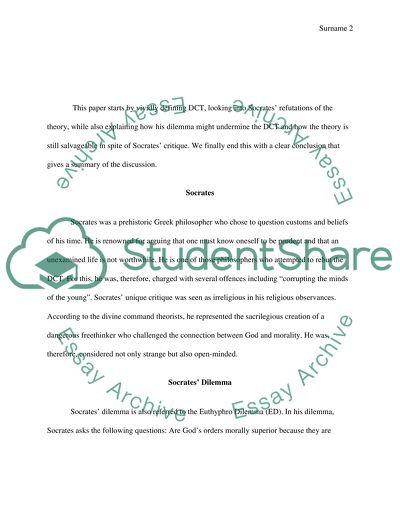Cite this document
(“What is the Divine Command Theory and How Might Socrates' Dilemma Be Essay”, n.d.)
Retrieved from https://studentshare.org/philosophy/1443018-what-is-the-divine-command-theory-and-how-might
Retrieved from https://studentshare.org/philosophy/1443018-what-is-the-divine-command-theory-and-how-might
(What Is the Divine Command Theory and How Might Socrates' Dilemma Be Essay)
https://studentshare.org/philosophy/1443018-what-is-the-divine-command-theory-and-how-might.
https://studentshare.org/philosophy/1443018-what-is-the-divine-command-theory-and-how-might.
“What Is the Divine Command Theory and How Might Socrates' Dilemma Be Essay”, n.d. https://studentshare.org/philosophy/1443018-what-is-the-divine-command-theory-and-how-might.


